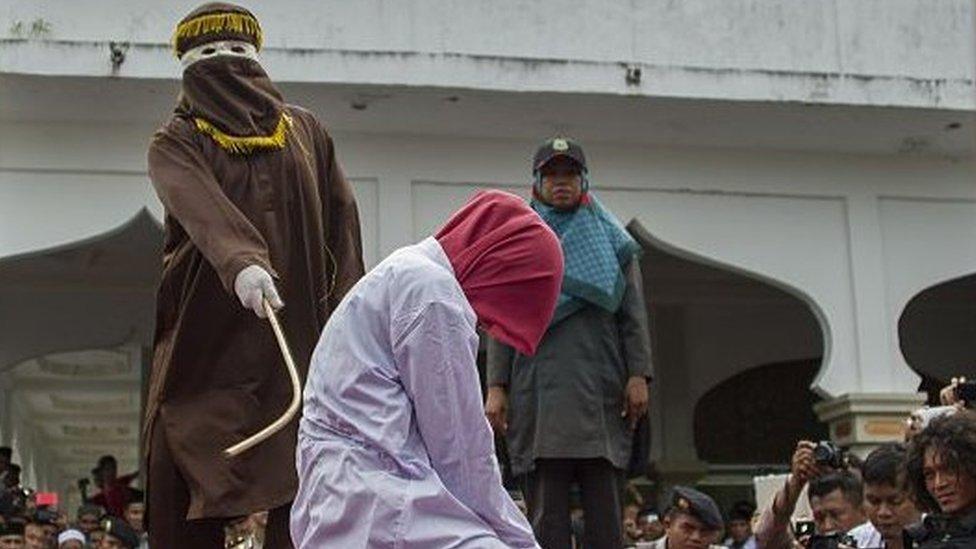In the shadowy corridors of Malaysia’s Islamic legal system, a scene unfolded that once again thrust the nation’s strict religious enforcement into the global spotlight. On a day like any other, yet profoundly different, a Malaysian man found himself the spectacle of public punishment—a stark reminder of the complex intersection between religious law and personal conduct in this Southeast Asian nation. As onlookers watched, the rhythmic sound of rattan cutting through air became a visceral manifestation of moral judgment, where social norms and religious mandates converge with uncompromising precision. In a stark demonstration of Sharia law enforcement, a Malaysian man recently faced public corporal punishment for violating religious social norms. The incident unfolded in Terengganu, a conservative state known for its stringent Islamic regulations, where public caning serves as a deterrent for perceived moral transgressions.
The individual, whose identity remains concealed, was subjected to a public whipping for breaching Islamic guidelines concerning close physical proximity between unmarried individuals. Such penalties are deeply rooted in the state’s interpretation of religious principles, aimed at maintaining strict social boundaries and preserving perceived moral standards.
Dressed in standard prison attire, the offender was led to a designated public area where the punishment would be administered. A trained enforcement officer, wielding a specialized cane, delivered measured strikes in accordance with prescribed legal protocols. Witnesses observed the scene, which represents a powerful symbol of religious judicial practices in the region.
This form of punishment is not uncommon in certain Malaysian states that implement Sharia law alongside the national legal system. While controversial on international human rights platforms, local authorities argue that such penalties represent cultural and religious traditions designed to uphold community moral codes.
The caning process follows specific guidelines, with limitations on the number and intensity of strikes. Medical personnel are typically present to ensure the punishment does not cause severe physical harm beyond the prescribed judicial intent. The public nature of the punishment serves multiple purposes: punishment, deterrence, and social messaging.
Legal experts continue to debate the effectiveness and appropriateness of such punitive measures. Some argue that public corporal punishment potentially undermines broader social rehabilitation efforts, while proponents maintain that it represents a crucial mechanism for maintaining social order within religiously conservative communities.
The incident highlights the complex intersection of religious law, cultural practices, and contemporary legal frameworks in Malaysia. While urban centers like Kuala Lumpur increasingly embrace more progressive interpretations, some states maintain traditional approaches to moral and social regulation.
Such public disciplinary actions remain a contentious topic, drawing both local support and international criticism. They reflect ongoing tensions between traditional religious interpretations and evolving global perspectives on personal freedom, human rights, and judicial practices.
The event serves as a potent reminder of the intricate legal and cultural dynamics that continue to shape societal norms in regions where religious law plays a significant role in governance and social regulation.
